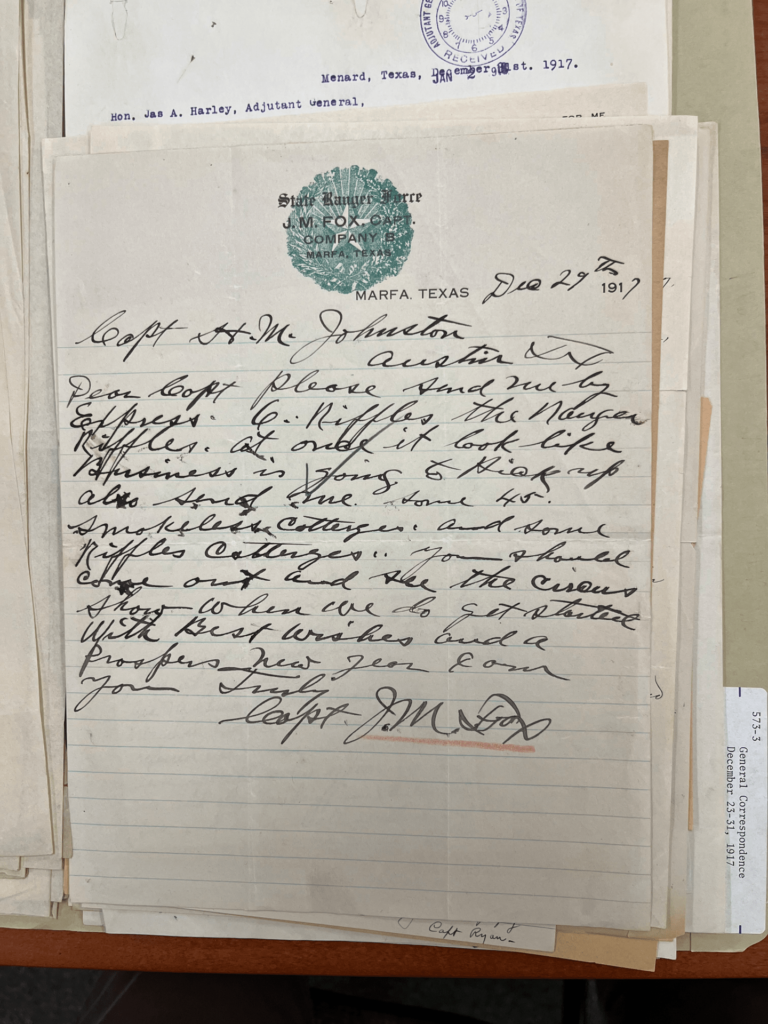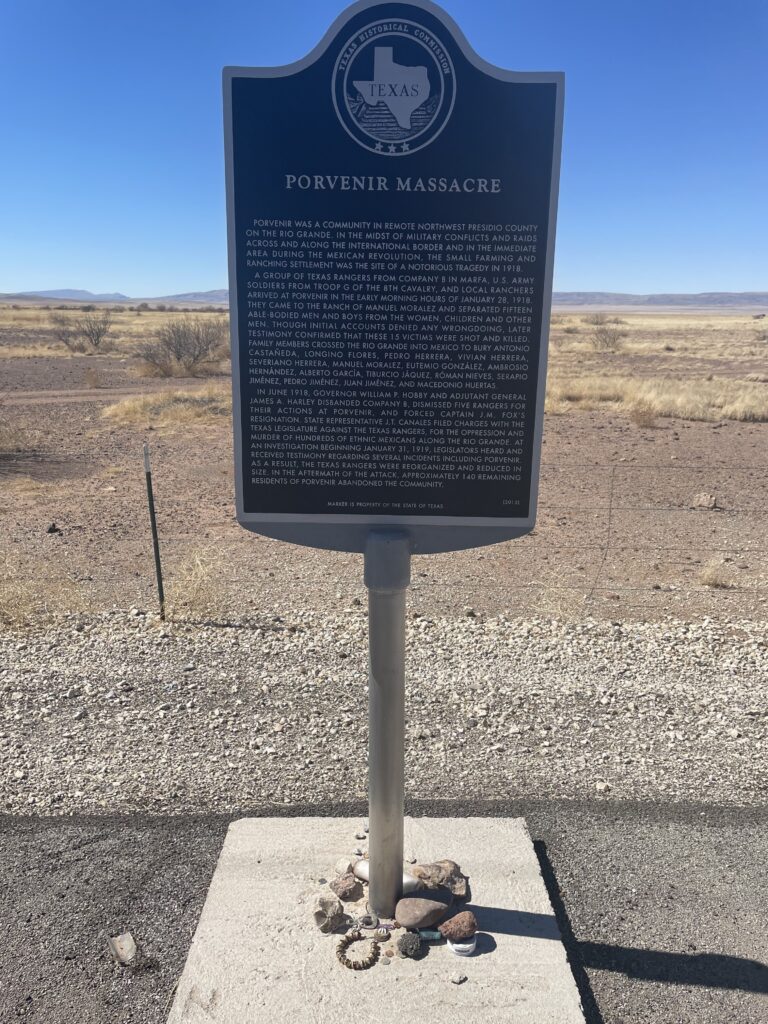The use of military weapons and other equipment by police forces is one facet of contemporary debates over policing in the United States. Although most of the military weaponry in the possession of municipal police departments came in the aftermath of a 1997 law that allowed for the transfer of such equipment, the practice is much older than that. “Rifles going forward tonight,” telegrammed the commander of the Texas Rangers to Captain James Monroe Fox in Marfa on January 2, 1918. Twenty-six days later, Rangers in Fox’s Company massacred fifteen men and boys in the village of Porvenir.
Late this summer, The Journal of Conflict Archaeology published an article by David Keller of the Center for Big Bend Studies at Sul Ross University. The article is the product of years of work at the site of the January 1918 massacre of fifteen men and boys. The enormous amount of work behind the study confirms the massacre site, based mostly on cartridge casings. A chilling detail is that the munitions pattern suggests that one victim attempted to flee and was pursued and shot at a distance from the other fourteen.
Keller argues that the findings suggest the Army was involved in the massacre. This seems reasonable, since the dig uncovered lots of military-issue ammunition on the site. This ostensible finding has attracted a fair bit of media attention – a brief report on KUT, write-up in New Scientist, and mentions in the Wall Street Journal and an episode of the Texas Monthly’s podcast on Ranger history.
Curiously, Keller failed to consider the possibility that the Rangers had military-issued weapons. Finding cartridges fired by guns issued to the U.S. Army is not evidence that soldiers fired any of the bullets that made so many orphans and widows.
After the article’s publication, historian Richard Ribb, a UT-Austin PhD who has written articles and a book manuscript about the Rangers in this period, went to the Ranger archives in Austin and quickly found a written request from Ranger Captain James Monroe Fox for Army rifles just a month before Rangers under his command perpetrated the massacre. The telegram from Adjutant General James Harley to Fox on January 2nd cited above indicates that the rifles were being sent to him.

There is no mystery about the Porvenir massacre. A Ranger captain who bragged in telegrams to his commanders of murdering captured suspects in previous years, who was viewed as unpredictably violent by some fellow Ranger officers, admitted that his men killed people at Porvenir; eyewitnesses and Army officials pinned blame on the Rangers; and Fox’s resignation was secured on this basis (although he was later reappointed twice, so Ranger leadership saw this as a public relations crisis rather than a criminal act). The only question is when the Ranger Hall of Fame and Museum and the Texas Ranger 2023 will acknowledge that this atrocity is part of the Rangers’ legacy. That will take more than an archaeological study.

